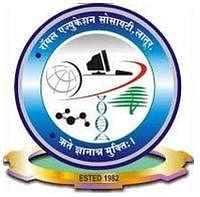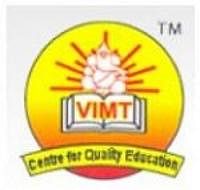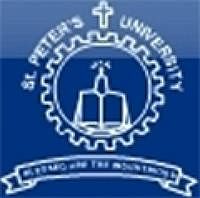B.Sc Software Engineering Syllabus and Subjects

B.Sc Software Engineering syllabus includes subjects like Application Development, Software Testing, Bug testing, and Application module among others. Through a unique blending of likely disciplines, one will get the knowledge needed to start a career in this sector. The following is a list of the B.Sc Software Engineering course syllabus.
Semester Wise B.Sc Software Engineering Syllabus
The B.Sc Software Engineering curriculum includes a wide range of topics, including Software Engineering, as well as specialisations in software engineering principles, software specifications and software architecture, and others. The B.Sc Software Engineering courses are broken up into six semesters and cover a wide range of topics.
The following is a list of the B.Sc Software Engineering subjects offered each semester:
B.Sc Software Engineering First-Year Syllabus
The table below contains the list of B.Sc Software Engineering subjects in the first year:
| Semester I | Semester II |
| Basic Mathematics | Engineering Mathematics I |
| Basic Physics | Basic Chemistry |
| Information & Communication Technology | Basic Electronics |
| Problem Solving & Program Design | Fundamentals of Linux OS |
| Engineering Graphics | Programming in C |
B.Sc Software Engineering Second Year Syllabus
The table below contains the list of B.Sc Software Engineering subjects in the second year:
| Semester III | Semester IV |
| Engineering Mathematics II | Fundamentals of Data Structures |
| English | Digital Techniques & Microprocessor Programming |
| Electrical Engineering | Object-Oriented Programming I |
| Computer Peripherals Hardware and Maintenance | Javascript Programming |
| Web Page Design | Environmental Studies |
B.Sc Software Engineering Third Year Syllabus
The table below contains the list of B.Sc Software Engineering subjects in the third year:
| Semester V | Semester VI |
| Data Structures & Files | Java Programming |
| Computer Network | Operating System |
| Database Management System I | Database Management System II |
| Object-Oriented Programming II | Web Application Development |
B.Sc Software Engineering Subjects
Over the course of three years, B.Sc Software Engineering courses cover a wide range of subjects and topics that are crucial for prospective students to study. Core and elective categories are used to categorise the subjects for the B.Sc Software Engineering programme. A list of B.Sc Software Engineering courses are provided below:
B.Sc Software Engineering Core Subjects
The core B.Sc Software Engineering subjects list of essential subjects that all students study, is as follows:
- Problem Solving for Programmers (half unit)
- Developing Object-Oriented Programs (half unit)
- Introduction to Databases
- Internet Technology
- Fundamentals of Computing
- Network Foundation
- Group Project
- Object-Oriented Application Development
- Database Application Development
- Developing for the Internet
- Human-Digital Interaction design
- Engineering Software Systems
- Graduate Development
- Software Systems Development
- Process Analysis and Requirements Engineering
- Project (double unit)
Practicals:
- Practical Session
- Seminar
- Internship
- Project Work
B.Sc Software Engineering Elective Subjects
- computer programming
- algorithms
- data structures
- human-computer interaction
- web development
- software project management
- architecture and operating systems
- security and usability
- social responsibility and ethics
B.Sc Software Engineering Course Structure
Core and elective courses are frequently offered in B.Sc Software Engineering programmes. Core subjects take up the first few semesters of the Engineering programme. Depending on the Software Engineering programme, it may take up to one academic year to finish the core curriculum.
After that, candidates have the option of customising their second and third-year Software Engineering programme by choosing electives based on their post-Software Engineering employment goals. Students might decide to specialise in various fields of engineering by picking elective courses and concentrations.
Your post-B.Sc career goals in Software Engineering can be communicated to potential employers effectively by using these specialisations.
The topics included in the B.Sc Software Engineering course provides not just theoretical understanding but also vital interpersonal and practical abilities. The B.Sc Software Engineering course structure is broken down as follows:
- VI Semesters
- Core Courses
- Elective Courses
- Practicals
- Seminars
- Internship
- Project Work
B.Sc Software Engineering Teaching Methodology and Techniques
The B.Sc Software Engineering programme uses their own set of instructional strategies. Practical lessons are used to teach subjects so that students can understand what is being taught to them. Various teaching methods are employed by various Software Engineering programmes. In order to improve the effectiveness of training, B.Sc Software Engineering uses case studies, group projects, and other types of action-based learning in addition to conventional lecture-based instruction.
This results in learning more about the course's theory and application. The different teaching methods applied in the B.Sc Software Engineering programmes are as follows:
- Practical /Project sessions
- Internship
- Seminars
- Regular Lectures
B.Sc Software Engineering Projects
The B.Sc Software Engineering programme emphasises group projects and activities through project-based learning, which is a prevalent teaching technique. As they move through the course, groups of six to eight students each work on assignments and other duties relevant to the course.
Working on projects is largely used to make sure that pupils fully grasp the principles. Some of the most popular B.Sc Software Engineering projects include the following:
- Android task monitoring.
- Sentiment analysis for product rating.
- Fingerprint-based ATM system.
- Advanced employee management system.
- Image encryption using the AES algorithm.
- Fingerprint voting system.
- Weather forecasting system.
- Android local train ticketing system
B.Sc Software Engineering Books
The B.Sc Software Engineering books provide students with a fundamental overview of the course as well as an in-depth study of their area of concentration. The course textbooks are available to students both online and offline. And carefully reviewing the course prerequisites by obtaining the course details before enrolling in the course, students can make an informed choice.
The reference texts for the B.Sc Software Engineering curriculum is as follows:
| Name of Book | Author |
| Algorithms to Live By: The Computer Science of Human Decisions | Brian Christian and Tom Griffiths |
| Code: The Hidden Language of Computer Hardware and Software | Charles Petzold |
| The Computer Networking: A Top-Down Approach | James F. Kurose and Keith W. Ross |
| The Art of Computer Programming, Volume 1: Fundamentals of Algorithm | Donald Ervin Knuth |
| The C Programming Language | Brian W. Kernighan |














